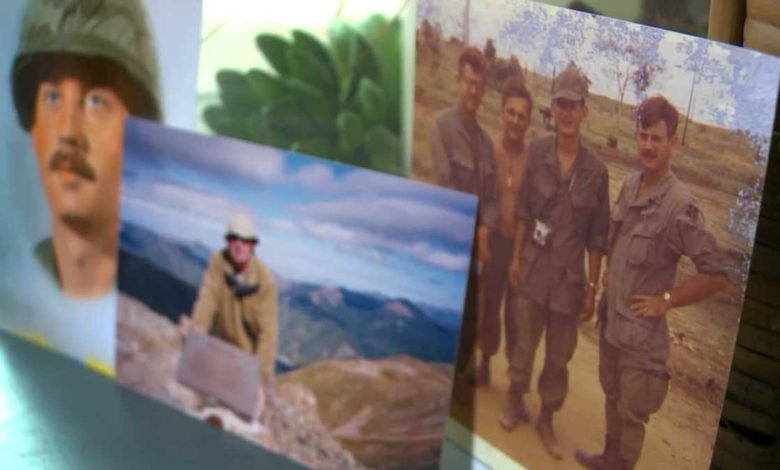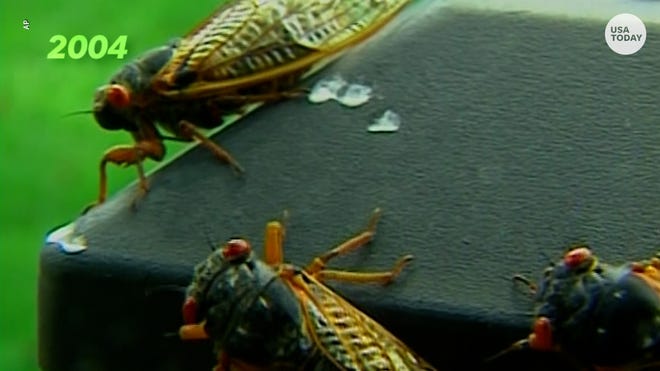

The family of an Iowa veteran is encouraging other veterans to pledge to donate their brain to CTE research. Allen Way graduated from the University of Iowa and was drafted into the Army at 24 years old. He served in Vietnam for 11 months. "After that, he came home right away like everyone else. He was a narcotics officer in Des Moines, and then was appointed by Gov. Ray to be the head of the Iowa crime commission. He was actually the youngest at the time in the nation," said Way's daughter, Meredith Smith. After years in public safety, Way and his wife settled in Carroll where they ran a business. "After retirement, we started to see more of his service time coming back to him," said Smith. Smith says her father started experiencing balance issues, memory loss and hallucinations. He went to the VA hospital for help. Doctors diagnosed him with a traumatic brain injury and PTSD. "We started to see a quicker decline with cognitive things and memory. We just kind of thought it's early dementia. He's 71 and we just need to be sure his doctors at the VA know," said Smith. In 2017, Way took his own life at the age of 71. "The state examiner who performed his autopsy called us and said after having all your dad's medical records and looking through this stuff, and knowing he was a veteran I think we can get his brain accepted at the Boston University Brain study for CTE. We were kind. What is CTE? What is going on? And he explained it and we said of course," said Smith. Dr. Ann McKee at the CTE Center at Boston University told Way's family his brain had stage 3 CTE. Chronic traumatic encephalopathy, or CTE, is the term used to describe brain degeneration likely caused by repeated head traumas. McKee has diagnosed CTE in hundreds of football players. Way is one of the first, and still just a handful of military-only CTE cases."It was so hard to believe that my dad had had that, and that who knows how long he had been struggling because he didn't tell us anything," said Smith.There is an urgent push to get veterans to pledge to donate their brains. This week, Wounded Warrior Project partnered with the Concussion Legacy Foundation to get the word out."It's the only way that they are going to be able to diagnose CTE in a living individual is through research. So they need brains," said Smith. Smith's mission is now speaking to Iowa veterans groups about CTE — and sharing her father's story. "It's given my family and I an avenue to keep my dad's legacy alive and to honor him, and to honor our veterans," said Smith. Veterans can pledge to donate their brains at ProjectEnlist.org.
The family of an Iowa veteran is encouraging other veterans to pledge to donate their brain to CTE research.
Allen Way graduated from the University of Iowa and was drafted into the Army at 24 years old. He served in Vietnam for 11 months.
"After that, he came home right away like everyone else. He was a narcotics officer in Des Moines, and then was appointed by Gov. [Robert] Ray to be the head of the Iowa crime commission. He was actually the youngest at the time in the nation," said Way's daughter, Meredith Smith.
After years in public safety, Way and his wife settled in Carroll where they ran a business.
"After retirement, we started to see more of his service time coming back to him," said Smith.
Smith says her father started experiencing balance issues, memory loss and hallucinations. He went to the VA hospital for help. Doctors diagnosed him with a traumatic brain injury and PTSD.
"We started to see a quicker decline with cognitive things and memory. We just kind of thought it's early dementia. He's 71 and we just need to be sure his doctors at the VA know," said Smith.
In 2017, Way took his own life at the age of 71.
"The state examiner who performed his autopsy called us and said after having all your dad's medical records and looking through this stuff, and knowing he was a veteran I think we can get his brain accepted at the Boston University Brain study for CTE. We were kind. What is CTE? What is going on? And he explained it and we said of course," said Smith.
Dr. Ann McKee at the CTE Center at Boston University told Way's family his brain had stage 3 CTE. Chronic traumatic encephalopathy, or CTE, is the term used to describe brain degeneration likely caused by repeated head traumas. McKee has diagnosed CTE in hundreds of football players. Way is one of the first, and still just a handful of military-only CTE cases.
"It was so hard to believe that my dad had had that, and that who knows how long he had been struggling because he didn't tell us anything," said Smith.
There is an urgent push to get veterans to pledge to donate their brains. This week, Wounded Warrior Project partnered with the Concussion Legacy Foundation to get the word out.
"It's the only way that they are going to be able to diagnose CTE in a living individual is through research. So they need brains," said Smith.
Smith's mission is now speaking to Iowa veterans groups about CTE — and sharing her father's story.
"It's given my family and I an avenue to keep my dad's legacy alive and to honor him, and to honor our veterans," said Smith.
Veterans can pledge to donate their brains at ProjectEnlist.org.
Source link








